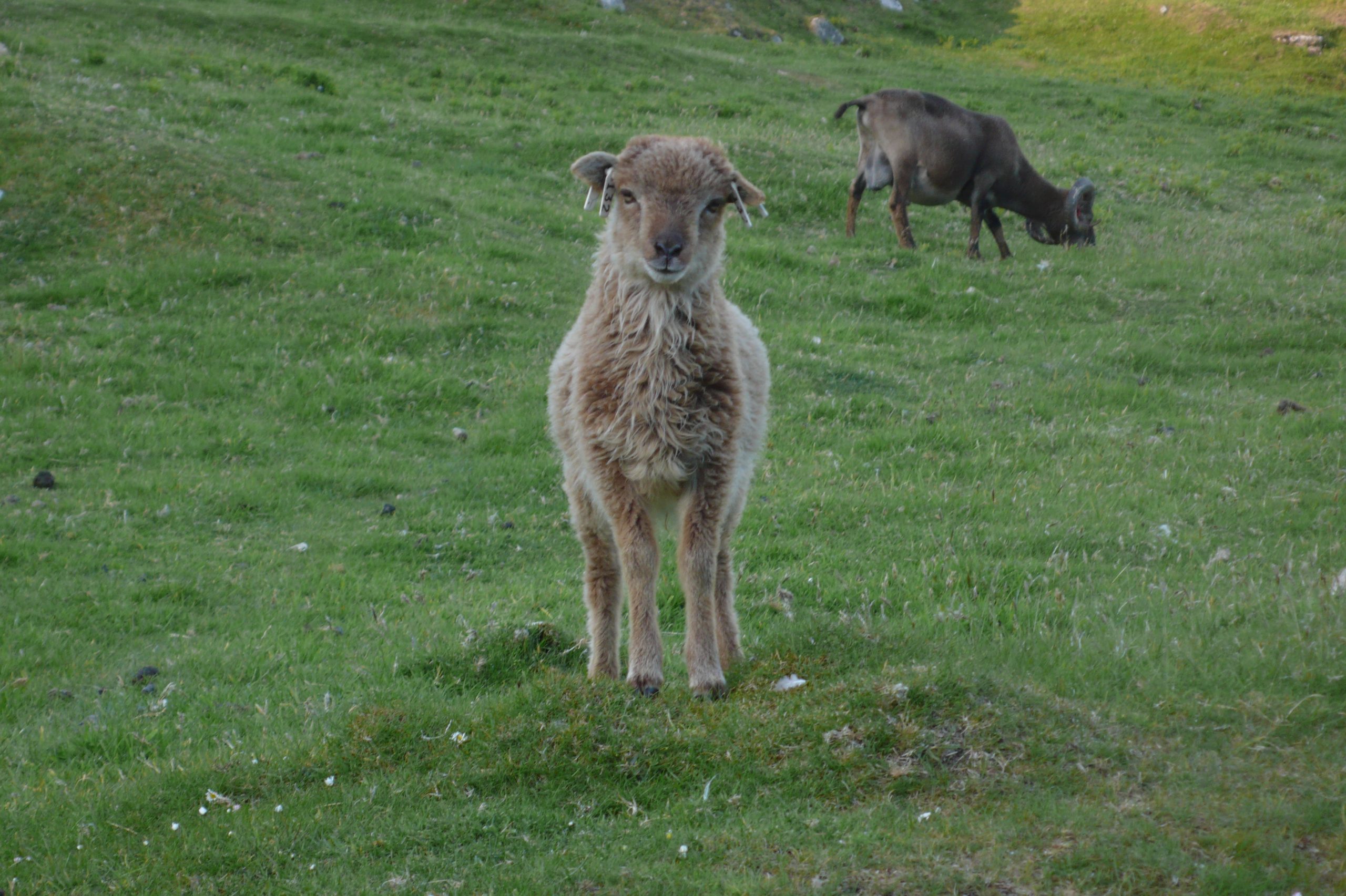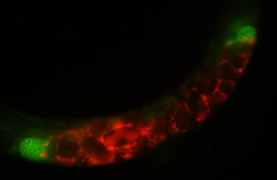This week in PLOS Biology
In PLOS Biology this week, you can read about how ‘killer sperm‘ might prevent inter-species breeding, a new observation in the process of making stem cells, and an insight into parasitic tolerance in a long-studied population of sheep.
One characteristic often used to define a species is the inability to breed outside of it. Usually the consequences of doing so only extend to producing no offspring – or unsuccessful offspring (e.g. donkey + horse = mule). However new research by Janice Ting, Asher Cutter, Eric Haag and colleagues has unearthed altogether more sinister consequences. When males and females of different Caenorhabditid nematode worm species were mated, the lifespans of female worms were dramatically reduced and some were left sterile. Invading sperm was seen to destroy the ovaries and break through to other body tissues. They conclude that this ‘killer sperm’ could be a powerful evolutionary way to maintain a species barrier. For more background to this story, see the accompanying primer.
Somatic-cell nuclear transfer is a technique used to create an embryo from a body cell and an egg cell. It has become a focus of stem cell research for therapeutic uses. New research by Richard Halley-Stott, John Gurdon and colleagues makes an intriguing and potentially extremely useful observation about cell re-programming following these nuclei transplant experiments. When nuclei were transplanted from mouse muscle cells to amphibian eggs, nuclei taken during the mitotic phase of the cell cycle showed a much higher chance of reprogramming to form pluripotent cells than those taken in other phases of the cell cycle. The exact reasons behind this were not clear, but this research has important implications if selection for mitotic cells can improve the chances of producing stem cells.

Animals can adopt two strategies in response to parasitic infection: resistance or tolerance. In a new study using 25 years’ worth of data on wild sheep, Adam Hayward, Andrea Graham and colleagues look at individual variation in tolerance. They found that there was variation in how quickly individuals lost weight as parasite infections increased. Those that lost weight more slowly showed a higher lifetime breeding success. This suggests that natural selection can act upon tolerance in nature. This could have implications for human health and livestock management.

